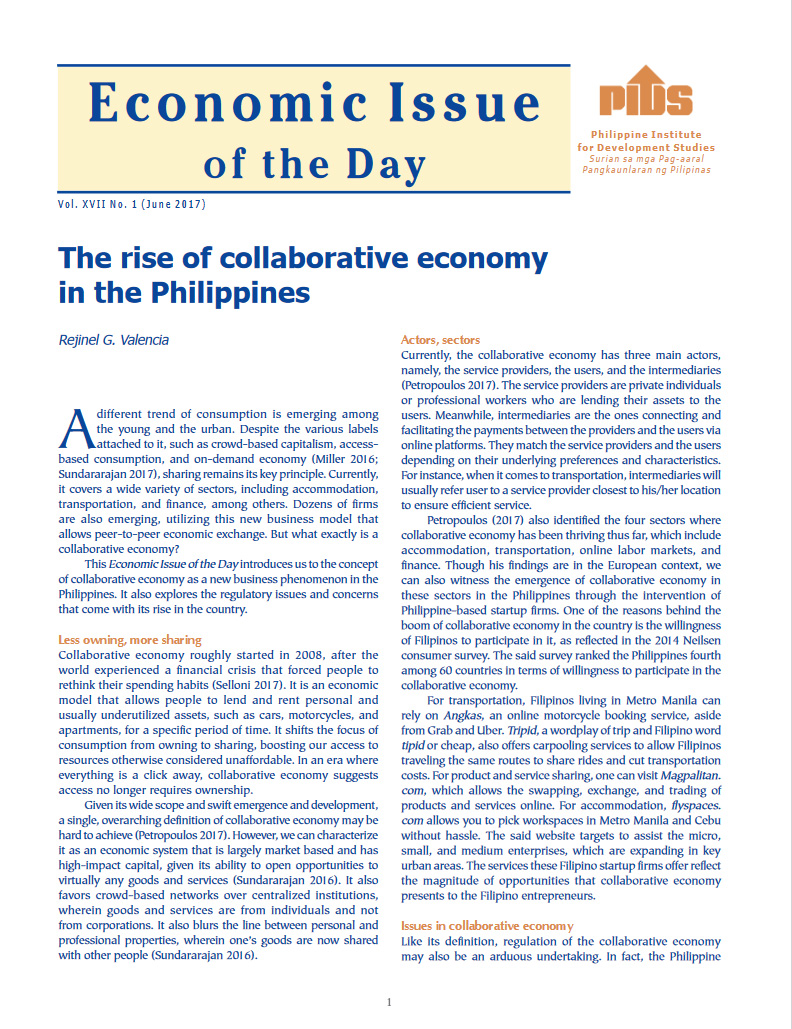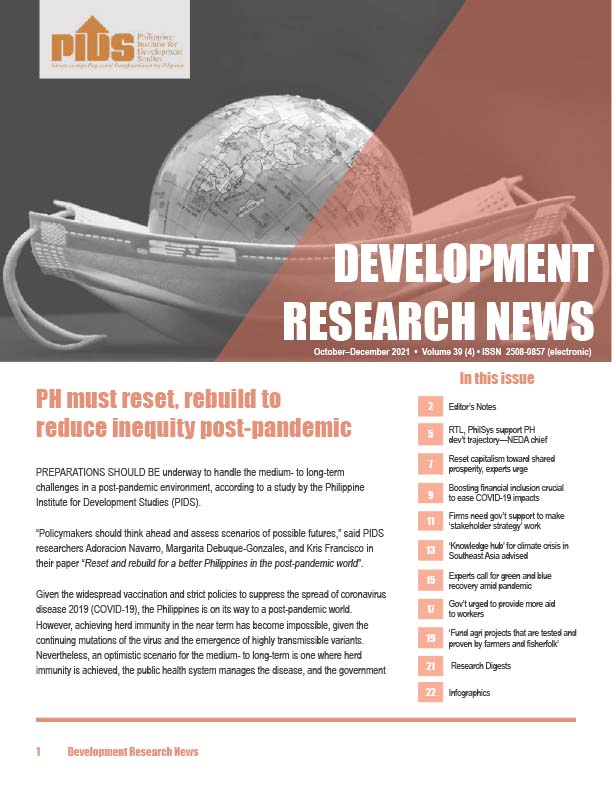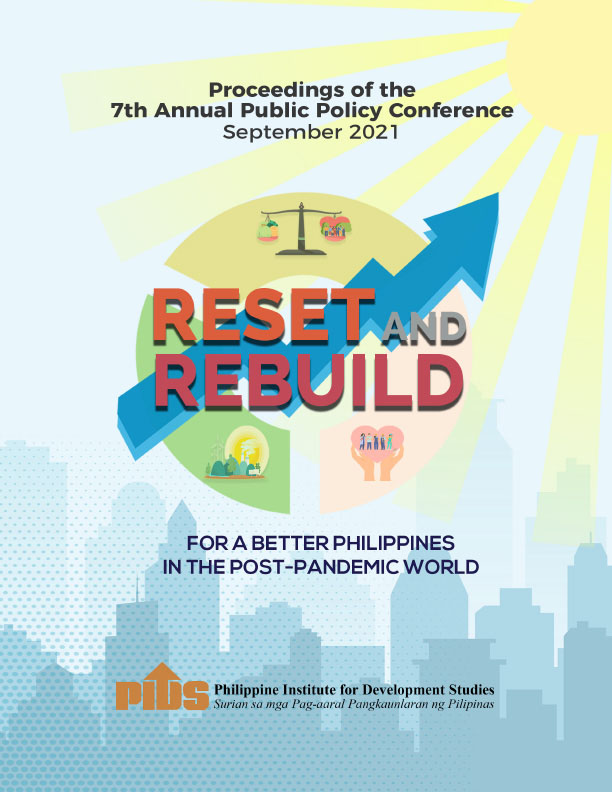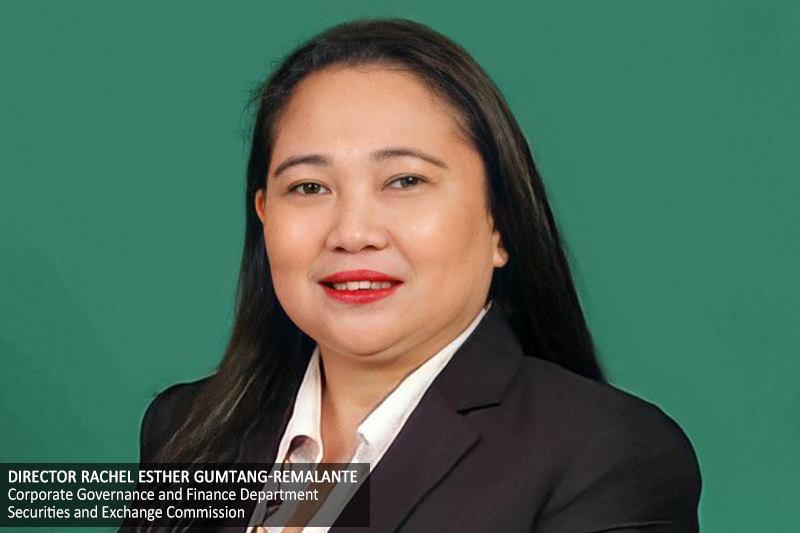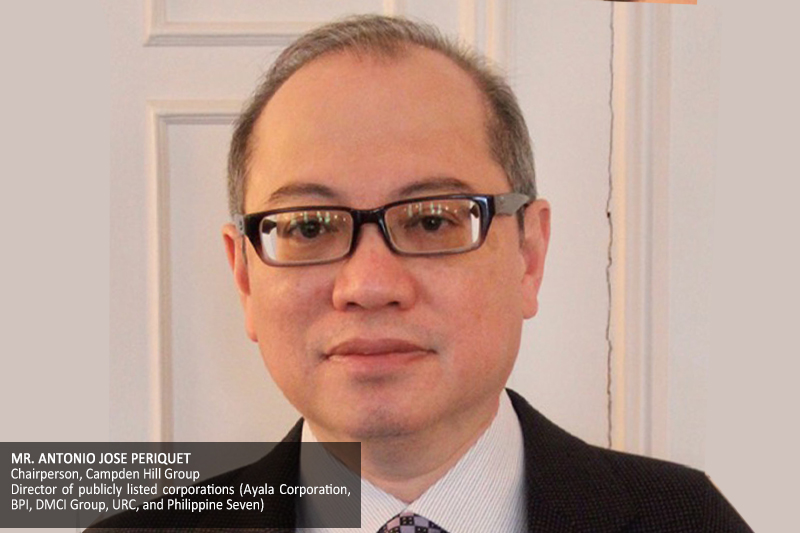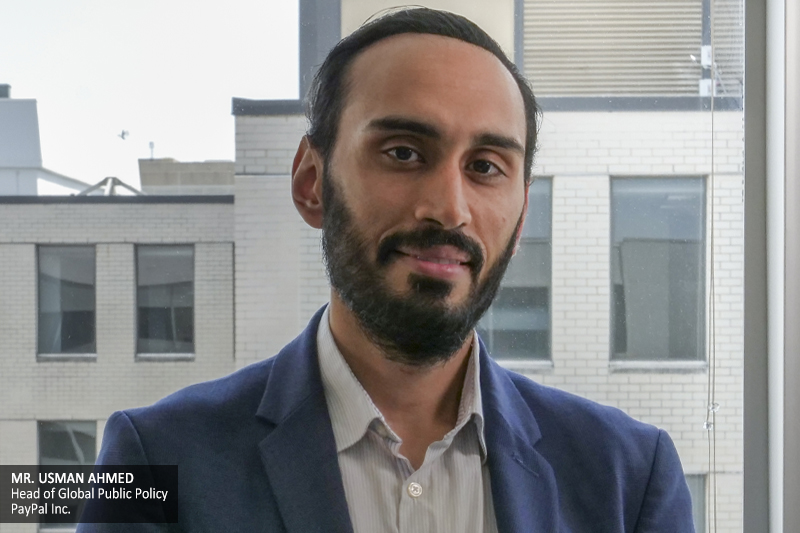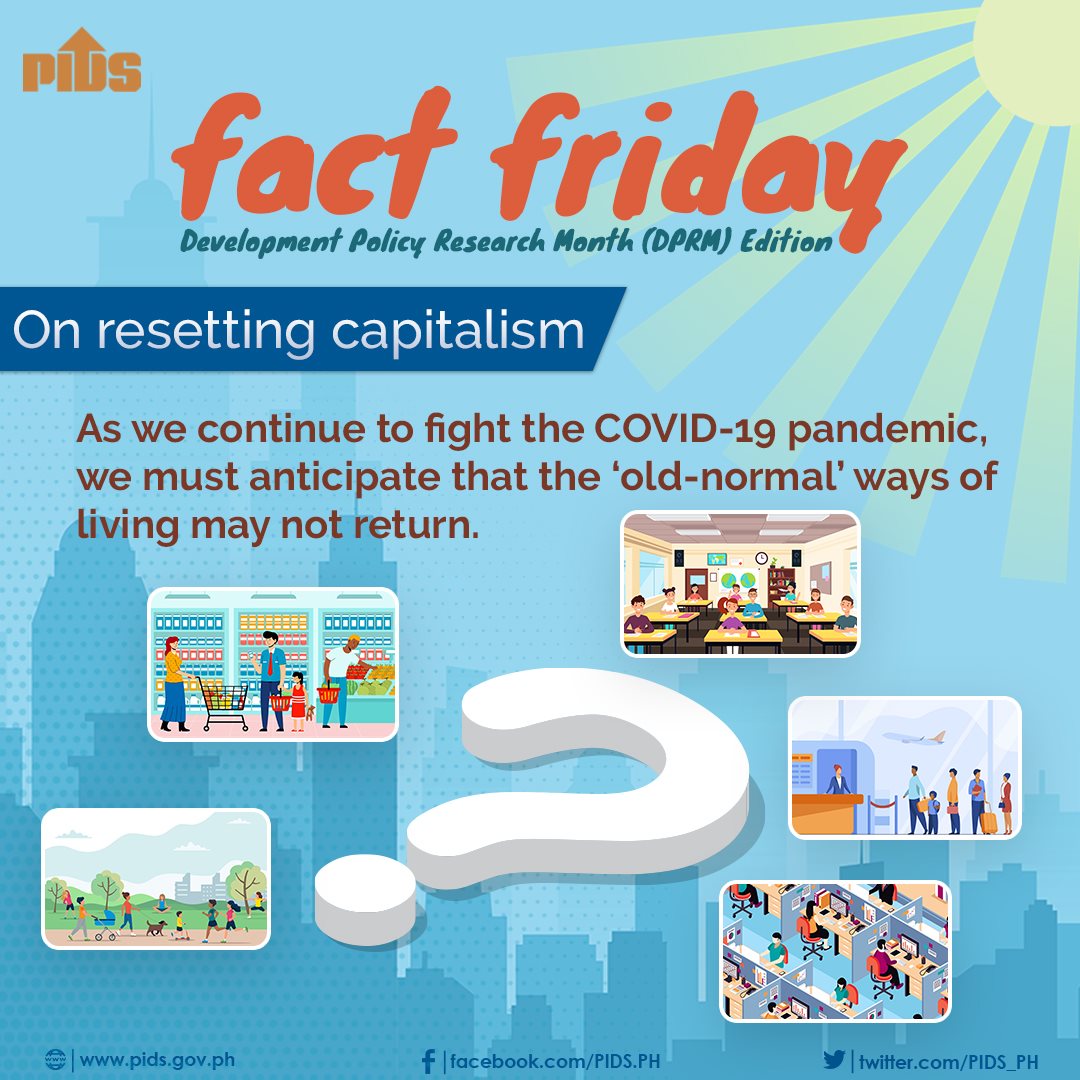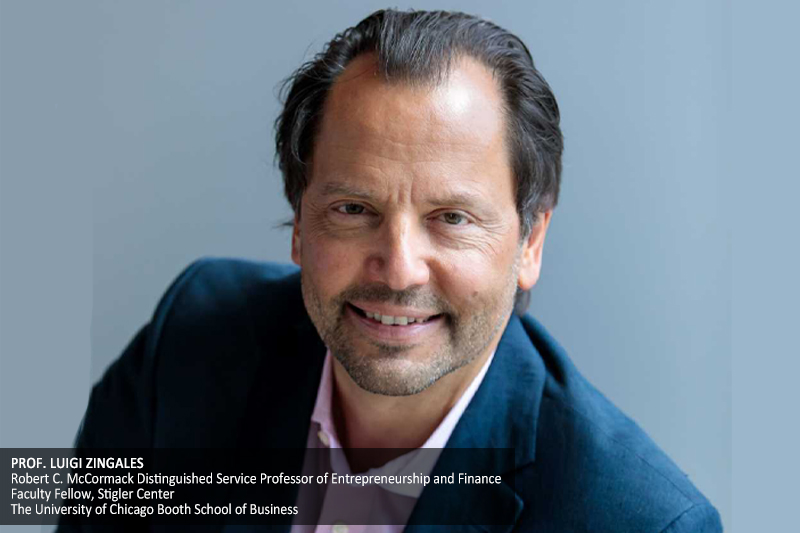
“Today, capitalism is by and large corporate capitalism. If we want to think about how to reset it, we need to rethink about the way corporations are run.”
University of Chicago Booth School of Business’ Stigler Center Faculty Fellow and Professor Luigi Zingales underscored this during the first of the four-part webinar series of the 7th Annual Public Policy Conference (APPC).
Zingales said that the way corporations are run nowadays is based on Milton Friedman’s 1970 doctrine that espouses the idea that “the social responsibility of business is to increase its profits.” The Friedman Separation Theorem operates on the assumption, among others, that “individuals care only about monetary payoff” and that “there are no externalities” brought about by these corporations.
According to Zingales, the notion that individuals only care about monetary returns is “false”. He noted that “large foundations have goals other than mere profit maximization.”
“Every time there is synergy between social activities and profit-making activities, then the Friedman Separation Theorem does not hold…If it is cheaper not to pollute than to pollute and clean up…then it is more efficient for companies to adopt social objectives such as protecting the environment than to simply maximize profits, distribute profits to shareholders, and let [them] do what they want socially with their money,” Zingales explained.
Meanwhile, on the assumption that there are no externalities, Zingales said that “in [reality], we know that there are large externalities [e.g., pollution].” However, he noted that, at present, where large corporations can be cross-border in nature, “it is much more difficult for shareholders of this type to internalize the externalities that they generate in the community.”
For small corporations, which Zingales said, have “no market power”, are “completely subject to regulation”, and have no ability to change the status quo, they should maximize shareholders’ welfare instead, not their value or financial return.
On the other hand, very large corporations which “enjoy some market power” and have significant influence “should be held accountable, not just to their direct stakeholders, customers, and employees” but to the society at large, Zingales pointed out.
To do this, he said a “fiduciary duty towards society” should be imposed on large companies.
“My idea is that, maybe, the board members might be personally responsible for a multiple of the directors’ fees they received if the company opportunistically exploits the externalities at the expense of society,” Zingales said, emphasizing that they would have to pay out of their pockets for a company’s violation.
The APPC is the main and culminating activity of the Development Policy Research Month celebration led by the Philippine Institute for Development Studies every September. This year’s theme is “Reset and Rebuild for a Better Philippines in the Post-Pandemic World”, or in Filipino, “Muling Magsimula at Magtayo Tungo sa Mas Matatag na Pilipinas Pagkatapos ng Pandemya”.###
You may watch the APPC webinar on “Resetting Capitalism” at https://fb.watch/80cNUo490z/ or https://www.youtube.com/watch?v=TEEuBdc2Epk. For more videos of PIDS events, go to https://www.pids.gov.ph/videos.
University of Chicago Booth School of Business’ Stigler Center Faculty Fellow and Professor Luigi Zingales underscored this during the first of the four-part webinar series of the 7th Annual Public Policy Conference (APPC).
Zingales said that the way corporations are run nowadays is based on Milton Friedman’s 1970 doctrine that espouses the idea that “the social responsibility of business is to increase its profits.” The Friedman Separation Theorem operates on the assumption, among others, that “individuals care only about monetary payoff” and that “there are no externalities” brought about by these corporations.
According to Zingales, the notion that individuals only care about monetary returns is “false”. He noted that “large foundations have goals other than mere profit maximization.”
“Every time there is synergy between social activities and profit-making activities, then the Friedman Separation Theorem does not hold…If it is cheaper not to pollute than to pollute and clean up…then it is more efficient for companies to adopt social objectives such as protecting the environment than to simply maximize profits, distribute profits to shareholders, and let [them] do what they want socially with their money,” Zingales explained.
Meanwhile, on the assumption that there are no externalities, Zingales said that “in [reality], we know that there are large externalities [e.g., pollution].” However, he noted that, at present, where large corporations can be cross-border in nature, “it is much more difficult for shareholders of this type to internalize the externalities that they generate in the community.”
For small corporations, which Zingales said, have “no market power”, are “completely subject to regulation”, and have no ability to change the status quo, they should maximize shareholders’ welfare instead, not their value or financial return.
On the other hand, very large corporations which “enjoy some market power” and have significant influence “should be held accountable, not just to their direct stakeholders, customers, and employees” but to the society at large, Zingales pointed out.
To do this, he said a “fiduciary duty towards society” should be imposed on large companies.
“My idea is that, maybe, the board members might be personally responsible for a multiple of the directors’ fees they received if the company opportunistically exploits the externalities at the expense of society,” Zingales said, emphasizing that they would have to pay out of their pockets for a company’s violation.
The APPC is the main and culminating activity of the Development Policy Research Month celebration led by the Philippine Institute for Development Studies every September. This year’s theme is “Reset and Rebuild for a Better Philippines in the Post-Pandemic World”, or in Filipino, “Muling Magsimula at Magtayo Tungo sa Mas Matatag na Pilipinas Pagkatapos ng Pandemya”.###
You may watch the APPC webinar on “Resetting Capitalism” at https://fb.watch/80cNUo490z/ or https://www.youtube.com/watch?v=TEEuBdc2Epk. For more videos of PIDS events, go to https://www.pids.gov.ph/videos.

